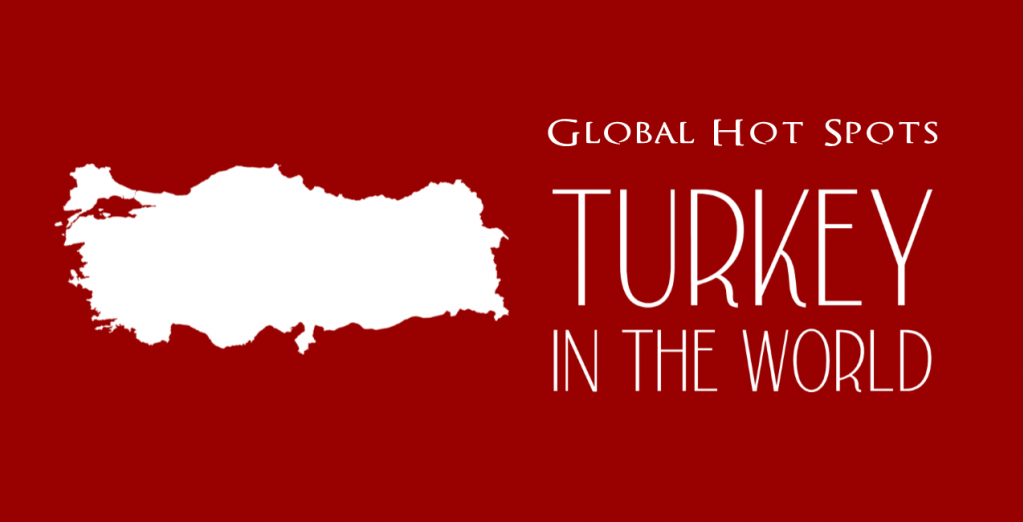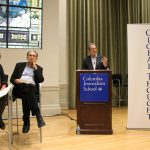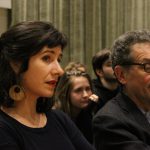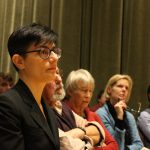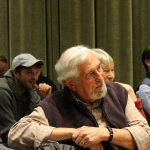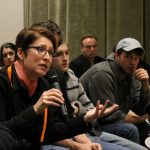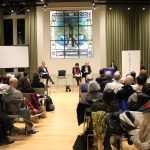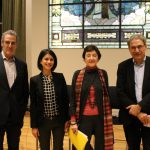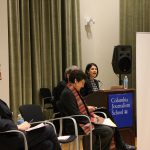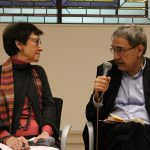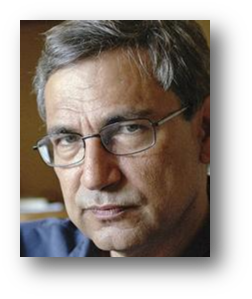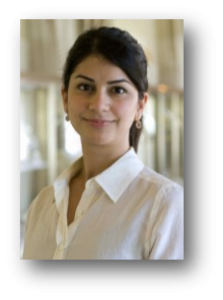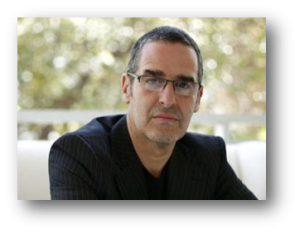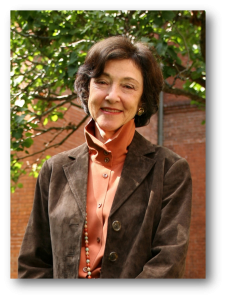One event in a new series on Global Hot Spots
November 21, 2016 · 6-7:30PM
Columbia Journalism School, Pulitzer Hall World Room
- Orhan Pamuk, Robert Yik-Fong Tam Professor of the Humanities; Fellow, The Committee on Global Thought
- N. Turkuler Isiksel, James P. Shenton Assistant Professor of the Core Curriculum, Political Science
- Mark Mazower, Commentator, Ira D. Wallach Professor of History
- Carol Gluck, Moderator, George Sansom Professor of History; Chair, The Committee on Global Thought
- Mark Mazower ends the discussion commentating on the discussion.
- A few of the audience members in attendance at the event.
- Audience members engaged in the discussion of the panelists.
- Audience members listen to the panelists presentations about Turkey.
- Rosalind Morris asks a question to the panel.
- Audience members waiting for the event to begin.
- Left to right: Mark Mazower, Turkuler Isiksel, Carol Gluck, and Orhan Pamuk.
- Turkuler Isiksel gives her presentation while her fellow panelists listen.
- Orhan Pamuk and Carol Gluck discuss military coups in Turkey.
